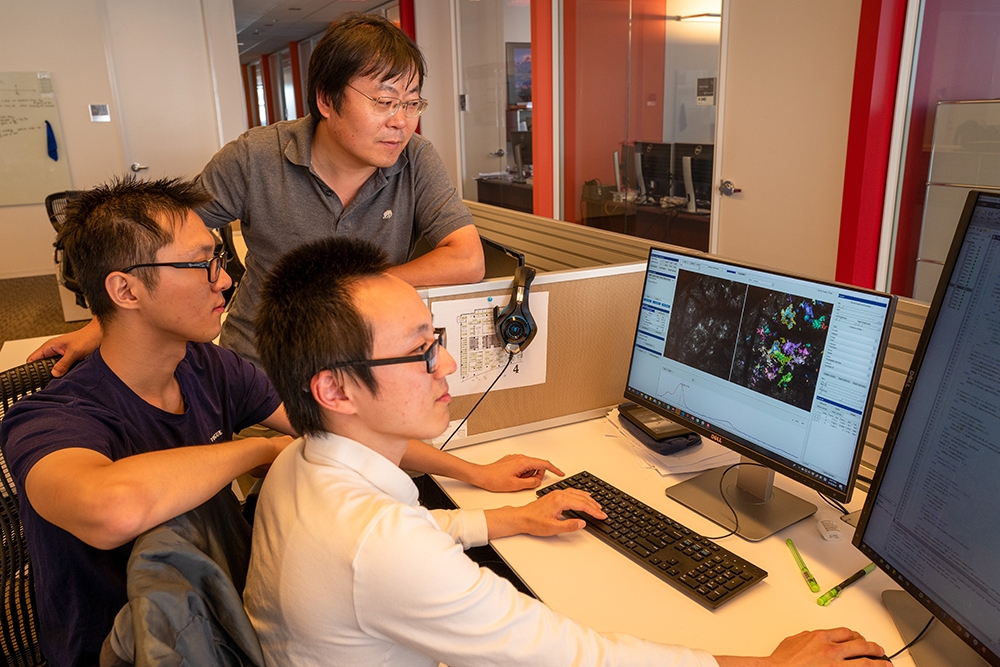Nature Neuroscience Publishes ECE Researchers' New Software Designed to Improve Study of Brain Function
September 30, 2019

As researchers continue to build their understanding of brain activity, The Bradley Department of Electrical & Computer Engineering at Virginia Tech has a team dedicated to gaining a better understanding of astrocytic physiology, which is an essential component of brain function.
Associate Professor Guoqiang Yu, lead investigator in this research, stated, "Essentially, astrocytic physiology is astrocyte activity. Astrocyte is one major type of cell in the brain and more numerous than neurons. Over the past several decades, accumulating evidence shows that astrocytes are not as passive as we once thought. Astrocytes are not only supportive of neurons, but also listen to and send signals to neurons to regulate their behavior. Thus, astrocyte is an integrated part of brain function. Astrocytic physiology is a concept summarizing their signaling activities in monitoring and modulating brain function."
Yu, along with students Yizhi Wang, Xuelong Mi, and other colleagues, have co-authored a paper entitled "Accurate quantification of astrocyte and neurotransmitter fluorescence dynamics for single-cell and population-level physiology", which was published in the jounal Nature Neuroscience on September 30, 2019. In particular, the development of the Astrocyte Quantitative Analysis (AQuA) software provides new capabilities of examining brain function.
Regarding the newly developed software, Yu commented, "AQuA is a new computational tool to analyze the complex microscope video of brain activity collected by scientists. It is based on a new analytic framework, which overcomes many problems that persisted in the past. It opens many new ways for scientists to use their data. AQuA was intended to automatically and accurately extract quantitative features from the data to describe the brain activity and enable scientists to understand how the brain works, or in some cases, doesnt."
Yu believes this ground-breaking software can provide scientists and patients alike with new methods to improve their quality of life. Yu said, "Our work provides new and powerful approaches for scientists to conduct their research and has the potential to be used for understanding the fundamental brain mechanism and developing new drugs to treat brain disorders."
Yu and his team are excited to be able to utilize their knowledge to develop something so impactful. "We are engineers. We are excited that we can apply our knowledge and experience in machine learning to build a tool to contribute to fundamental science and people's health. We hope that more engineers will step into this interdisciplinary field and apply machine learning methods to understand big biomedical data. We strongly believe that this field is full of opportunities and fills numerous needs. Our engineering training is quantitative and has its strength to contribute to this field."
Written by Greg Atkins







